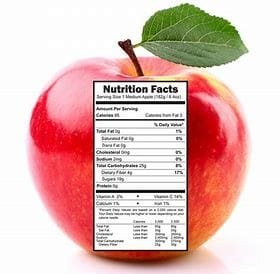Apples are one of the most versatile fruits enjoyed worldwide. Whether they’re sliced for salads, eaten fresh, or baked into tasty desserts, apples have an impressive list of health benefits. Such benefits arise from their bioactive compounds, vitamins, and minerals, putting them in a class of foods as true superfoods. In this article, we will get into the bio nutrient characteristics of the apples and how they work to enhance health.

1. High fiber intake helps support healthy digestion.
One of the high values of apples is their high fiber value, especially pectin, a soluble fiber very essential to digestive health. A medium apple contains about 4 grams of fiber, which is approximately 15% of the suggested amount for adult ingestion.
How Fiber Helps
Digestive regulation:
Soluble fiber such as pectin helps regulate the bowel movement in that it absorbs water within the intestines and turns it into something close to a jelly-like substance in the intestines to enable digestion to go smooth.
Beneficial gut health:
Fiber feeds the friendly bacteria found within the gut. There is some evidence that it contributes to healthy gut microbial composition. A healthy gut leads to good digestion, a well-functioning immune system, and even better mood.
Control of blood sugar:
All these fiber types down-regulate the rate at which sugars are released into the bloodstream, limiting blood glucose spikes and ensuring a stable energy curve.
2. Antioxidant Power: Protect Your Cells
Apples are rich in several antioxidants, which include flavonoids such as quercetin, catechin, and phloridzin. The possible role these compounds can play in protecting the body against oxidative stress is that free radicals—a harmful chemical compound—can cause cellular damage. Oxidative stress is observed to be one of the causative factors in chronic conditions such as heart disease, cancer, and aging.
Key antioxidants found in apples:
Quercetin:
A flavonoid that acts as an antioxidant with antiviral, anti-inflammatory, and antihistamine properties. Quercetin can prevent chronic diseases such as heart ailments by controlling the blood pressure levels, slowing down the process of inflammation, and improving lung functions.
Catechin:
This is another constituent found in green tea, and catechins are among the active ingredients that improve the effectiveness of brain functions and also act in the burning of fats. Apples are rich in catechins that prevent stroke and improve heart health.
Chlorogenic acid:
It is reported to reduce carbohydrate absorption in the gut, which can be responsible for reducing blood sugar levels and maintaining body weight.
Vitamin C: Power of Immunity and Skin
Apples are rich in vitamin C. This potent antioxidant helps the immune system work properly, promotes wound healing, and maintains healthy skin elasticity. One medium-sized apple contains about 10% of the total required amount of vitamin C.
Immune system:
Vitamin C is a necessary nutrient in producing white blood cells, which aid the body in fighting infections and diseases.
Skin benefits:
Vitamin C is required in the synthesis of collagen, a protein responsible for keeping the skin taut, smooth, and young-looking. This vitamin also aids in protecting your skin from damage caused by ultraviolet light and air pollutants.
Cellular repair:
Vitamin C is an antioxidant, which promotes reduced oxidative cellular damage and supports tissue regeneration.
4. Potassium Heart and blood pressure regulation
Potassium is among the minerals found in apples that makes it useful to regulate heart health and regulate the levels of blood pressure. A medium apple contains about 6 percent of the day’s intake of potassium.
What potassium does:

Heart health:
Potassium balances the effect of sodium to maintain fluid balance in the body. As potassium reduces the harmful effects of sodium, it leads to low blood pressure, preventing stroke and other heart diseases.
Muscle function:
Potassium is crucial for smooth functioning of muscles and nerves, which prevents muscle cramps and contributes to the general well-being of the muscles.
5. Weight Management:
Low in calories and High in Satiety. Apples are good for people who need to cut down on their weight. It has fewer calories—around 95 calories in one medium-sized apple—but is rich in water and fiber. These factors fill the body for a very long time, so you consider apples as one of the best snacks for cutting calorie intake yet giving much-needed nutrition.
Why apples are good for weight loss
High satiety: The water and fiber content in apples contribute toward making you feel more satiated for a longer time after consumption; this contributes to reducing the calorie intake.
Low in energy density:
Low energy density is said to be the one wherein less calories are consumed per gram and larger portions can be consumed. Apples are just one of them, and thus they can best be used for weight loss or weight management.
6. Flavonoids:
Reduces Chronic Disease Risk Flavonoids are a class of bioactive compounds in apples that have been very much studied for a role in preventing chronic diseases, including heart disease, diabetes, and different kinds of cancer.
Prevention of heart diseases:
The flavonoids present in apples, especially quercetin and epicatechin, have been known to lower the risk of heart disease by controlling cholesterol levels, lowering blood pressure, and reducing inflammation.
Research studies have proven that the risk of stroke can be reduced by up to 20% with regular apple consumption.
Diabetes prevention:
The fruits contain polyphenols found to help regulate blood sugar levels as they delay the absorption of sugars in the digestive tract and possess a stimulating effect on the pancreas to release more insulin for controlling elevated blood sugar levels. Thus, apples can very well prove to be a very good source of food for preventing the risk associated with type 2 diabetes.
Prevention of cancers:
Antioxidants in apples, primarily the flavonoids and phenolic acids, have anti-carcinogenic properties. They inhibit the cancerous conditions by scavenging free radicals and providing protection against oxidative damage. Studies even suggest a lower risk of cancers such as lung, colon, and breast due to regular intakes of apples.
7. Bones Strong: Building healthy bones
Apples, especially in their peel, contain a compound known as phloridzin, which may prevent bone loss among postmenopausal women. As it improves bone density and reduces inflammation, apples are included in a diet of healthy bones.
Calcium absorption:
Apples contain boron, which is also a trace mineral helping the body to absorb and retain calcium in the process of developing strong bones and healthy teeth.
Conclusion:

Apples are the healthiest fruits, bearing the functions of heart health and immunity. Even it has its beneficial effects on digestion and weight control. So, this function of fiber, antioxidants, vitamins, and minerals in apples works well for the betterment of human health and prevents humans from chronic diseases. It is very simple, scrumptious, and effective to include an apple a day into your diet in order to take full advantage of all the benefits offered by this amazing fruit, which acts as a treasure trove of bionutrients. Be it crunching them raw, adding them to smoothies, or simply cooking with them, the apples retain a timeless appeal toward better health.



